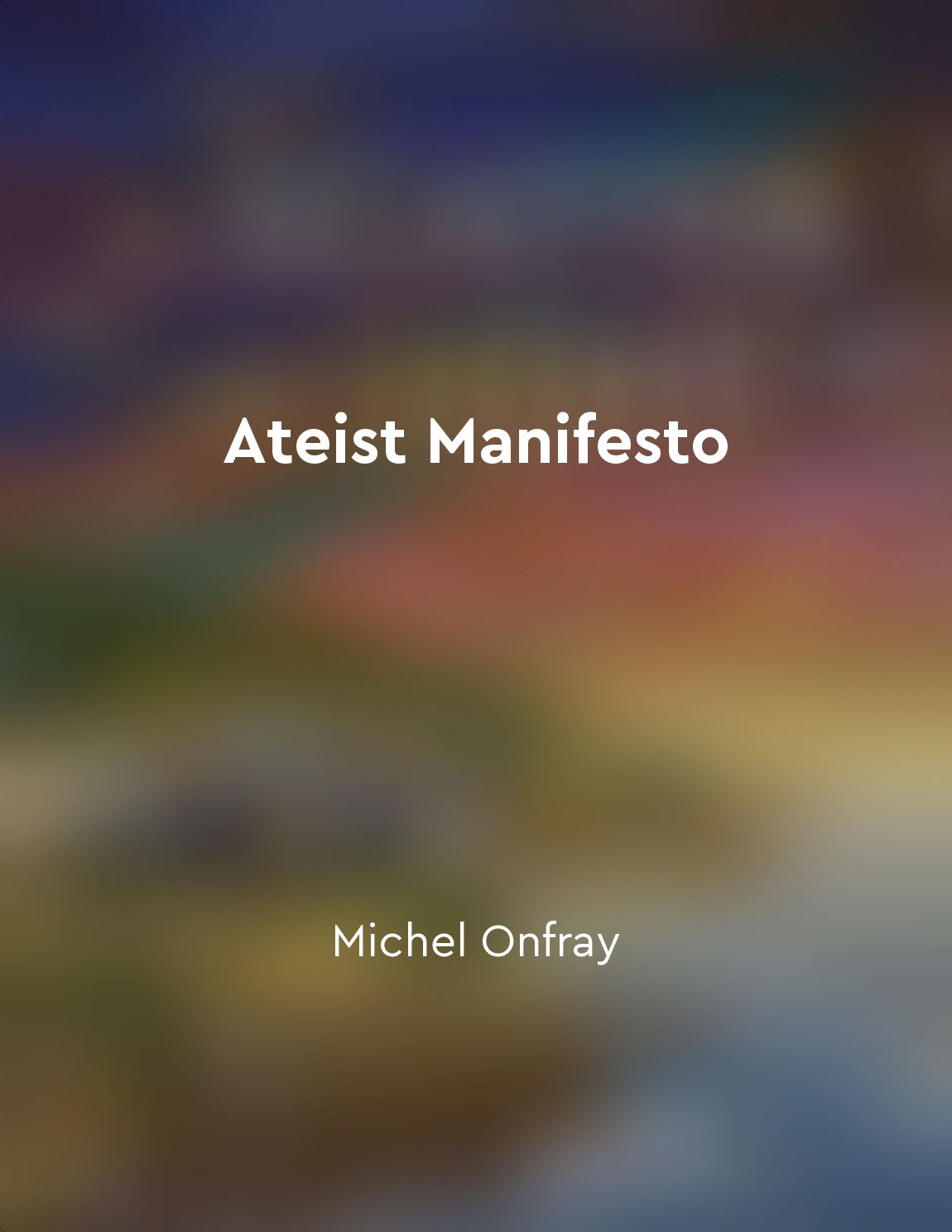By deconstructing the myth of religious violence, we can work towards a more peaceful world from "summary" of The Myth of Religious Violence by William T Cavanaugh
In the popular imagination, religion is often seen as the root cause of violence in the world. However, this view oversimplifies the complex relationship between religion and violence. By deconstructing the myth of religious violence, we can begin to see that religion is not inherently violent or peaceful. Rather, it is the ways in which religious beliefs are interpreted and mobilized that determine their impact on society. Religion is often used as a tool by political actors to justify violence and achieve their own ends. By framing conflicts as religious in nature, these actors can garner support from their followers and demonize their opponents. This manipulation of religious symbols and rhetoric serves to mask the true motivations behind violence, whether they be political, economic, or social in nature. Moreover, the focus on religion as the primary driver of violence ignores the many instances of non-religious violence throughout history. Wars fought over resources, territory, and power have caused immense suffering and death, yet these conflicts are often framed in secular terms. By attributing all violence to religion, we ignore the underlying factors that contribute to conflict and perpetuate a narrow understanding of the causes of violence. By challenging the myth of religious violence, we can begin to move towards a more nuanced and accurate understanding of the role of religion in society. This shift in perspective allows us to see that religion can be a force for peace and reconciliation, as well as a source of division and conflict. By acknowledging the complexities of religious belief and practice, we can work towards building a more peaceful world based on mutual respect and understanding.- Deconstructing the myth of religious violence is essential for promoting peace and coexistence in a diverse and interconnected world. By recognizing the ways in which religion is manipulated for political ends and understanding the broader social, economic, and political factors that contribute to violence, we can move towards a more inclusive and peaceful society.
Similar Posts
Trust is the foundation of any meaningful relationship
Trust is the bedrock of any meaningful relationship. Without it, our connections with others are built on shaky ground, suscept...
The state should promote moral and intellectual virtues
In a well-ordered state, it is important to consider the promotion of moral and intellectual virtues among its citizens. The st...

Climate change could exacerbate existing tensions
In the twenty-first century, the specter of climate change looms large over the world. Rising temperatures, shifting weather pa...

Atheism encourages openmindedness and inquiry
Atheism is not merely a rejection of religious beliefs; it is a way of thinking that values openmindedness and inquiry above al...

Religious texts are not a source of moral guidance
Religious texts are often considered by believers to be a source of moral guidance. However, this notion is challenged by the f...
The decline of violence is a global phenomenon
The idea that violence has decreased over the course of human history may seem counterintuitive. After all, we are bombarded da...

